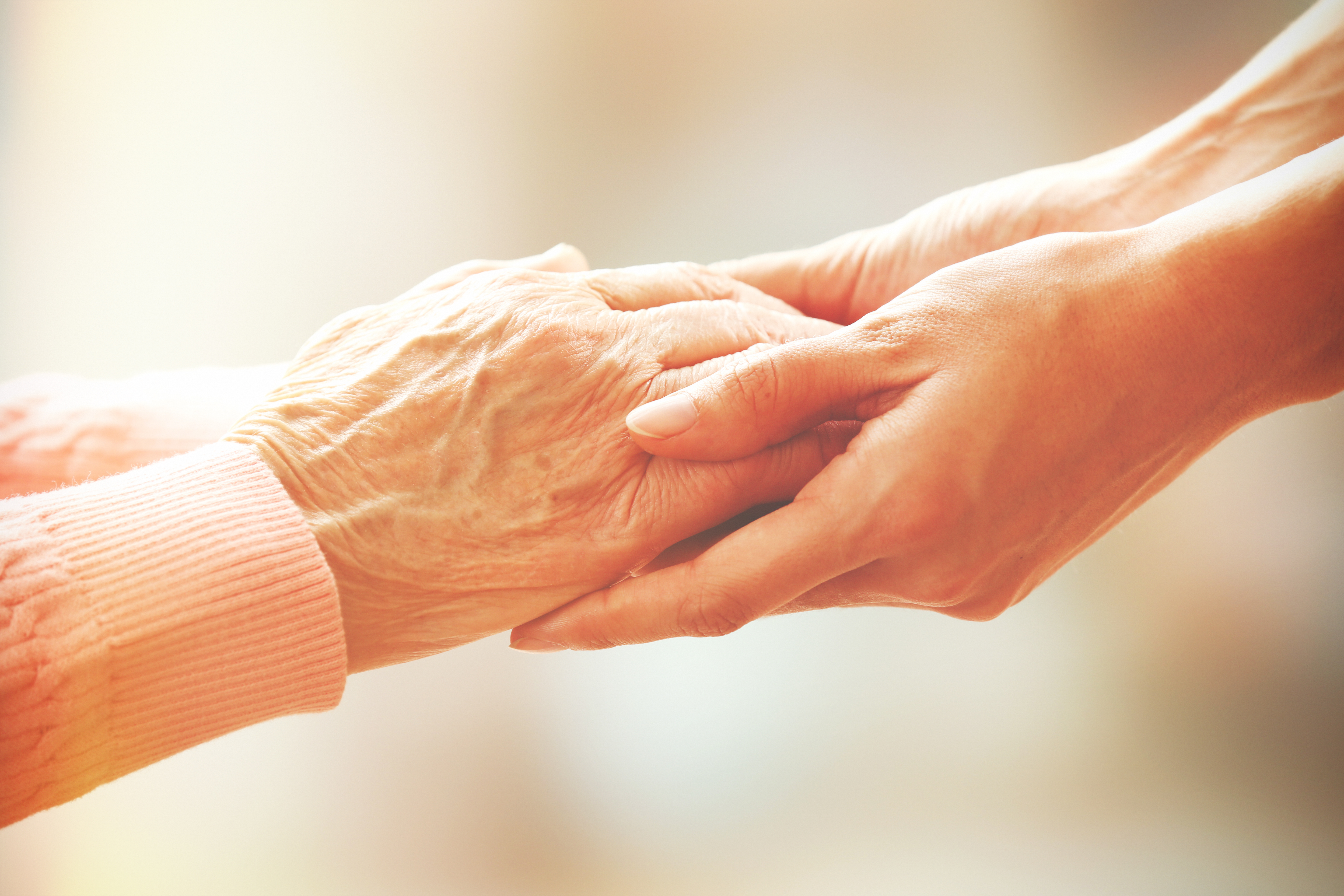As June—Alzheimer’s Month—comes to an end, I’ve been struggling trying to write an article about Alzheimer’s. It’s very personal for me, as my mother in England is in a wonderful nursing home that specializes in taking care of people with advanced Alzheimer’s and dementia. The worst of it being that I’m so far away and can’t even communicate with her by phone. My mother can’t speak, which is to say she can’t form words, unless she is really ticked off, then she is very vocal indeed! When I do get to visit, she doesn’t know me. Maybe for a few seconds there is a glimmer of something, but the mum I know and love is not present.
Now, I don’t know is she is aware of anything, but everyone in the nursing home says she is always laughing and giggling to herself and seems very happy in her own world. I like to think that she might be in between worlds and that when she is “away” she is happily laughing with those loved ones who have passed over, especially her father who she was really close to.
There still is no “cure” for this insidious disease, and once a close family member is diagnosed, it really hits home and makes you think hard about your own risk factors. In researching the topic, I came across this article on GoBoldly.com and wanted to share it. It gives me hope that maybe one day, with people like Brian and Samantha, there will be a cure. Too late for my mum, but hopefully not too late for millions of others, including me!
Brian’s family was worried. While it’s common for people to experience some memory loss as they get older, 54-year-old Brian’s forgetfulness seemed to be something different.
A diagnosis several months later proved that it was different: early-onset Alzheimer’s disease. Stunned by the diagnosis, Brian threw himself into research, hoping to make sense of it all and learn what to expect as the disease progressed. It was hard to find encouraging answers.
At the same time and several hundred miles away, Samantha, who leads clinical development of potential therapeutics at a biopharmaceutical company, was leading her team deeper into the mysteries of Alzheimer’s disease. “I’d been researching neurological disorders for some time when I joined [this team],” she explains, “but given Alzheimer’s had been a prior focus and with the emerging science, it made the work very intriguing.”
Today, Brian and Samantha and tens of thousands of other patients and researchers are fighting the same battle together: to improve the quality of life for Alzheimer’s patients along the long road from hope, to treatment, to a potential cure.
With recent medical advancements, Samantha believes that “one of the biggest breakthroughs in the last decade has been advances in brain imaging that support better clinical trials to understand whether therapeutic candidates may be having an impact. As her team continues working to find new therapies, Samantha’s message to patients is rooted in keeping positive and focused on today. “I would encourage a patient to embrace and enjoy what they can do every day,” she explains. “I would encourage a patient to consider what they want to do for themselves. And that’s exactly what Brian is doing. His fight against the disease has helped him discover what he wants to do in order to make the most of life.
“[I] made a decision that just because there’s not a cure, doesn’t mean I should give up living,” he says. Since Brian spent years as a counselor, he set out to help people that were going through the same thing, hoping to raise awareness and help drive the search to find a cure.
Brian explains that he has good days and bad days living with Alzheimer’s disease. Days where he almost forgets he has it, but then others where his condition is obvious. “Recently, I went through a really tough time of dealing with it,” he explains. I kept telling myself ‘okay, I’ve worked through this before; I need to work through it again.’ And I want to get back to the place where I feel I’m myself again.” But when it comes down to it, Brian says that reminding himself to live for today and to try not to worry about what’s in store for the future helps him during those hard times.
During her research, Samantha has spent quite a bit of time with patients and their families. She knows that the disease is also distressing for the people around the patient.
But she is more optimistic than ever when she considers the numerous trials and new advances against the disease, and believes in the potential to sharply improve the quality of life for people living with Alzheimer’s disease in her lifetime. A new Ambassador for the Alzheimer’s Association, Brian carries that optimism with him as he meets with government officials and spreads his social media message to increase awareness. Together, Brian and Samantha fight on.
 Food
Food Farmers
Farmers Sustainable Living
Sustainable Living Living Planet
Living Planet News
News